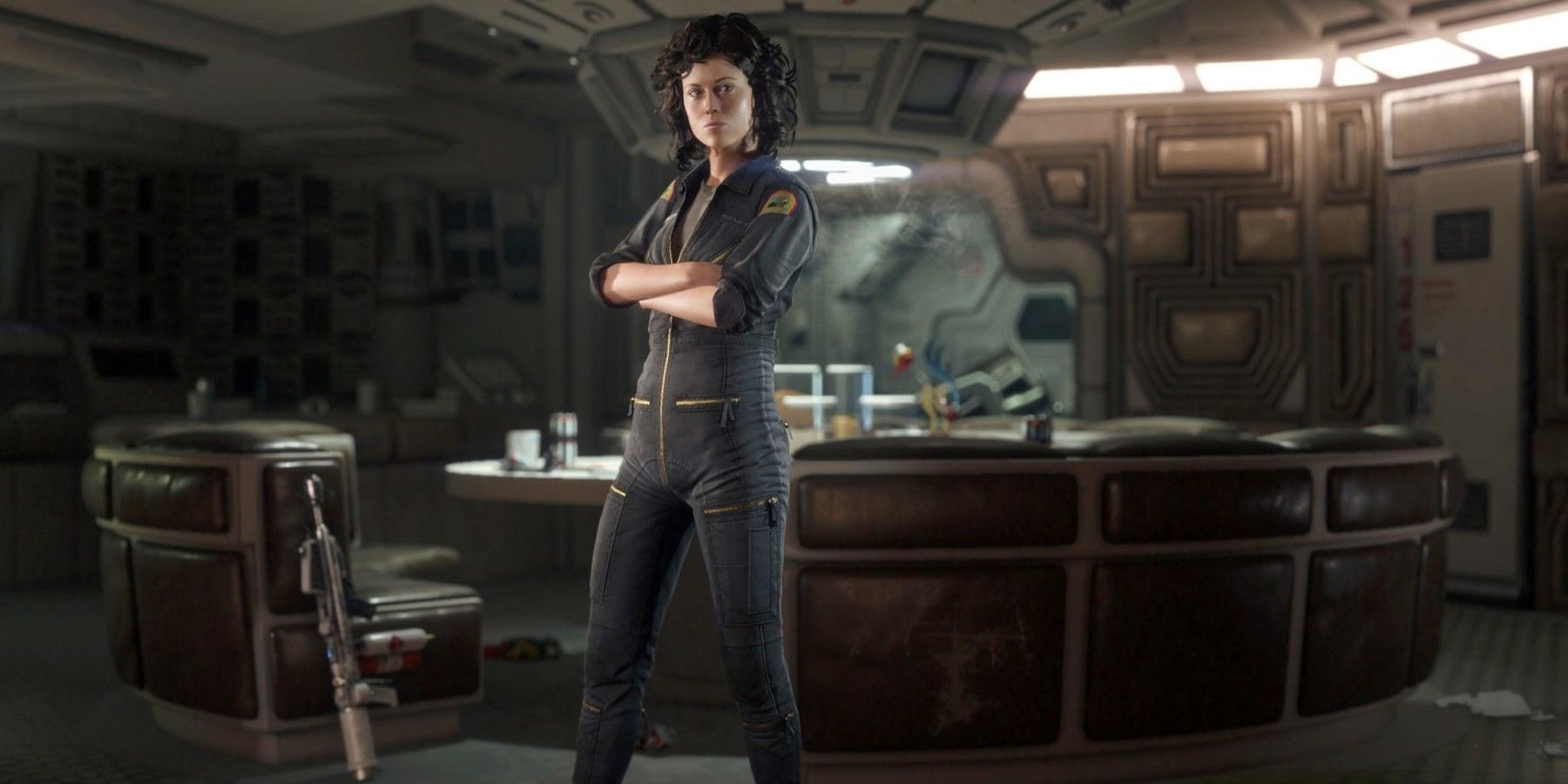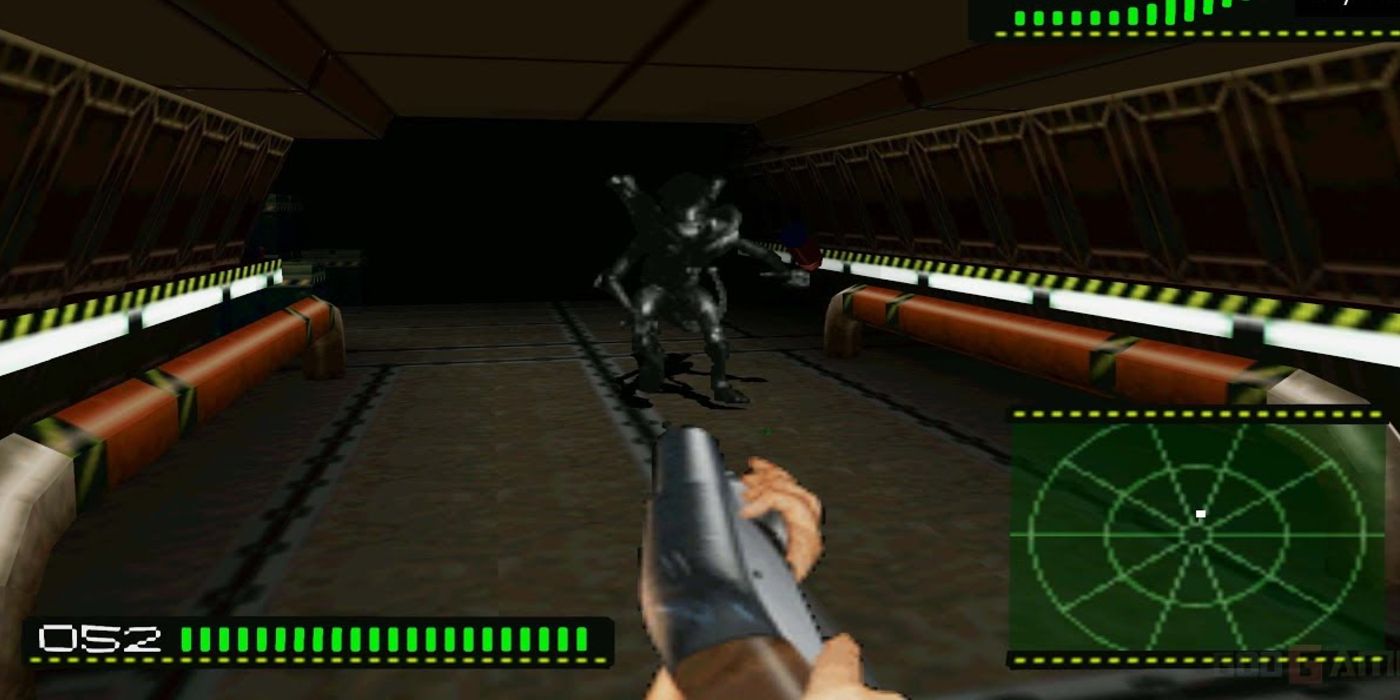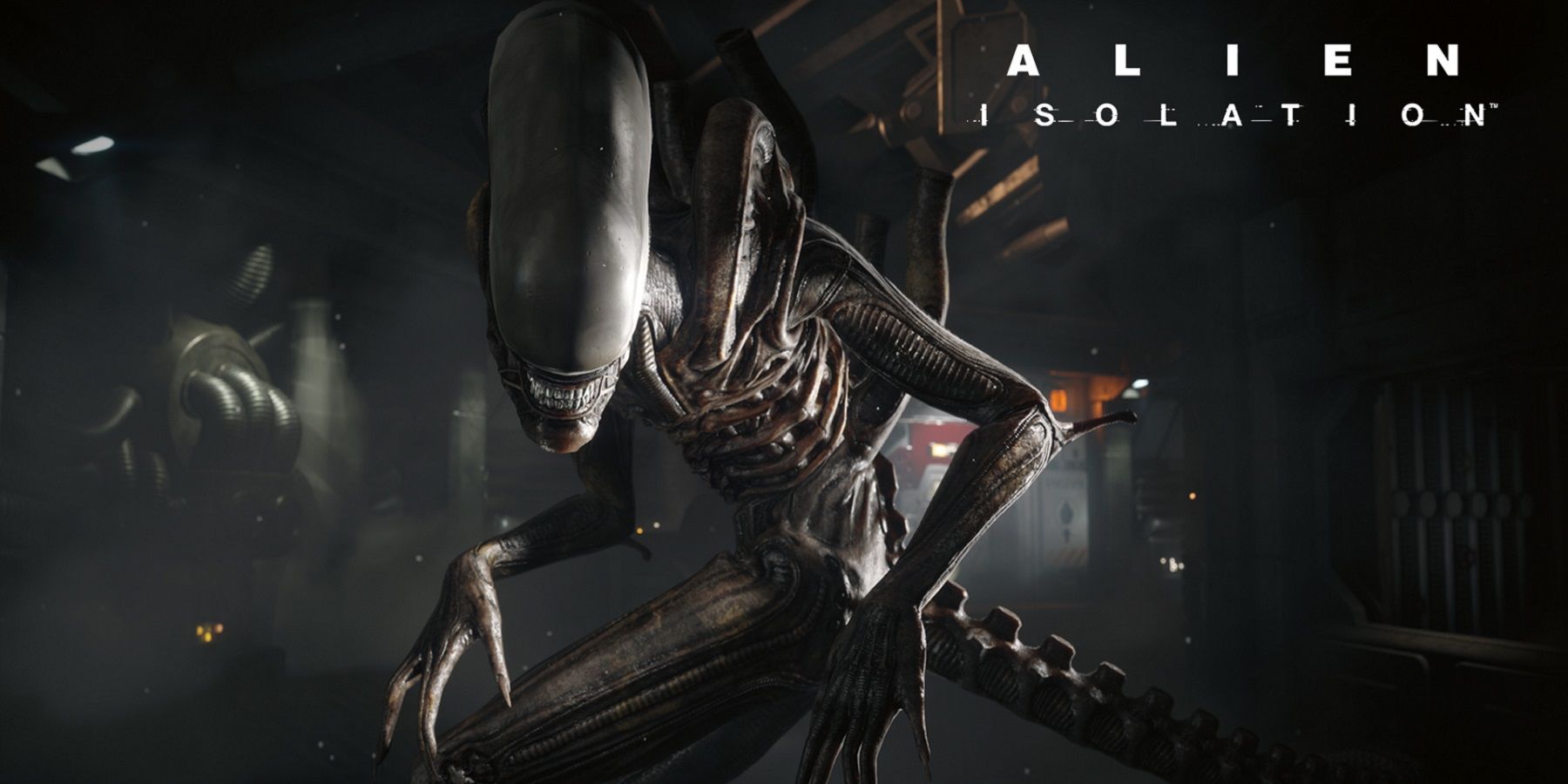In the video game space, the Alien franchise is in good health. Sega as well as Alien: Isolation developers Creative Assembly and Feral Interactive announced the game is on its way to iOS and Android, Alien: Isolation 2 is reportedly in the works, and the recent Aliens: Fireteam Elite sold decently well.
However, these recent games aren’t the only incarnations of the space-faring horror series, which has been adapted into video games since 1982 and has a long history even if Predator crossover games are ignored. It’s worth taking a look back at the history of Alien in video games before new potential ventures like Alien: Isolation 2 hit shelves.
Alien’s Early Video Game Incarnations
The first Alien video game, based on the original 1979 movie, was a Pac-Man-styled maze game developed by Fox Video Games and released on the Atari 2600 in 1982. Even as far back as that, developers were clearly keen to recreate the movie’s claustrophobic feel and iconic vent shaft scene. Then 1984 saw a more complex adaptation for the Commodore 64 and ZX Spectrum, granting the player control of every crew member of the Nostromo as they search for the escaped alien creature. The game received mixed reviews, but was also adapted for the Amstrad CPC in 1985.
It’s interesting to note that the term “xenomorph” describing H.R. Giger’s iconic aliens was not coined until the sequel film, Aliens, which released in 1986 to an overwhelmingly positive reception. The movie’s success unsurprisingly spawned a number of video game adaptations, with Aliens: The Computer Game released on Commodore 64 and ZX Spectrum in 1986, later ported to other hardware. Another game with the same title was released across the same systems a year later, but this one was a first-person adventure that received better reviews. The final Alien game to appear that decade was 1987's Aliens: Alien 2, a Japan-only release available on the MSX that notably featured Final Fantasy alumni Nobuo Uematsu as its sound designer.
Alien 3 released in 1992, and predictably a glut of new Alien video games came out around the same time. A Konami arcade game based on Aliens appeared in 1990, followed by the first Alien 3 adaptation in 1992. Originally released for Amiga, Commodore 64, and Sega Master System, this well-received run-and-gun shooter was ported to more modern platforms in the subsequent years, as well as seeing alternate adaptations for the Game Boy and SNES.
An arcade light gun-shooter called Alien 3: The Gun followed in 1993, and then 1996 saw the release of Alien Trilogy on PC, PlayStation, and Sega Saturn. This first-person shooter was praised for capturing the mood and atmosphere of the movies and was a commercial success. The Alien franchise closed out the millennium strong with 1997’s Alien Resurrection, and with the release of first-person shooter Aliens Online in 1998. Neither hit the heights of the franchise’s early days, but there were many reasons for fans of Ripley and the xenomorphs to be positive as they headed into a new century.
Alien in the New Millennium
The first adaptation of Alien Resurrection arrived in 2000 for the PlayStation, again a first-person shooter, which received mixed reviews after several years in development hell. The title did, however, help to pioneer the twin-stick controls universally used in modern first-person shooters.
A Game Boy Color release followed in 2001 with Aliens: Thanatos Encounter, once again to a middling reception. The rest of the 2000s focused solely on Alien vs. Predator crossover games, except for a 2006 arcade game called Aliens: Extermination. This perhaps reflected the state of the Alien franchise at this point, which didn’t have a canonical new release until 2012’s Prometheus.
The next Alien-only video game release did not arrive until 2011’s Aliens: Infestation on the Nintendo DS, and then Aliens: Colonial Marines in 2013. The latter title was infamous, with criticism focused on its technical problems, poor visuals, and weak enemy AI. The game even became the subject of a lawsuit when two players attempted to sue developer Gearbox and publisher Sega for false advertising after press demos seemed to feature better graphics than the final product.
The next year saw another arcade game, Aliens: Armageddon, but 2014 is more noteworthy for the release of Alien: Isolation on PC and all major consoles (later ported to Switch). The game was heralded as a strong survival-horror title, and praised for returning to the franchise’s roots by being based upon the first Alien movie. Fans were delighted by the inclusion of such iconic features as the beeping motion scanner and creepy ventilation shafts as they skulked, hid, and ran for their lives aboard the derelict Sevastopol.
The release of the most recent Alien movie, Alien: Covenant in 2017, saw an arcade adaptation in the same year alongside the virtual reality experience Alien: Covenant - In Utero. Alien: Descent was another VR title released in 2018, the same year that Alien: Offworld Colony Simulator became available. This was an intriguing turn-based survival game playable on the Amazon Alexa device.
Alien: Blackout released on iOS and Android in 2019, and was followed by Aliens: Fireteam Elite in 2021 on all major systems. Fans of the franchise eagerly await news of Ridley Scott’s plans for the next Alien movie, as well as the inevitable next video game outing for the Weyland-Yutani universe. Despite the mixed reception to Prometheus and Alien: Covenant, the xenomorphs are simply too popular and too terrifying to be kept away from gaming systems for long.



